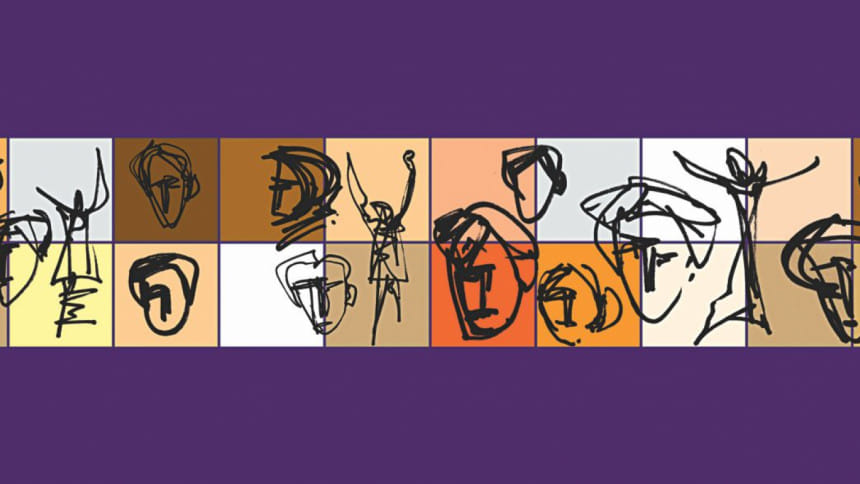CEDAW at a dead end in Bangladesh?

The United Nations Convention on the Elimination of All Forms of Discrimination Against Women, CEDAW in short, was adopted in 1979, and came into force in 1981. To date, a total of 189 countries across the world have ratified it in order to work for a world with gender equality.
Indeed, it is not as if Bangladesh's constitution doesn't already guarantee equal rights for women. Article 28[2] for example ensures equal rights for all citizens “in all spheres of the State and of public life”.
However, while Bangladesh's law is secular in name, the private sphere remains governed by personal laws, largely based on religion and traditional customs, which affect family and personal matters such as inheritance, marriage, and divorce. Thus, these itself are incompatible with a fundamental part of the constitution guaranteeing gender equality.
CEDAW and Bangladesh's reservations
Bangladesh ratified CEDAW in 1984 but with reservations on articles 2, 13(a), 16.1(c), and 16.1(f). In justification, the government cited “conflict with Sharia law based on Holy Quran and Sunna.” The conflict, however, was not specified and does not account for the fact that around 10 percent of the country is non-Muslim to who Sharia law does not even apply.
Why is the CEDAW important for Bangladesh? “CEDAW is a product of the global women's movement to address gender inequality—the first human rights tool solely for women,” says Ayesha Khanam, president of Bangladesh Mahila Parishad, which has been working to uphold and implement the Convention since 1985.
“The strengths of CEDAW are that it addresses state accountability—they have to implement the provisions and write periodic reports, as well as de jure and de facto inequalities, and incorporates both the public sphere as well as private life,” says Khanam.
Subsequently, the government lifted the reservations on articles 13(a), relating to the right to family benefits, and 16.1(f), relating to equal guardianship, in 1997. Articles 2 and 16.1(c), relating to the rights of women during marriage and divorce, remain to this day.
Article 2 calls on ratifying states to take policy measures eliminating discrimination against women while article 16 addresses equal rights of women in marriage, family relations, and divorce. The former is seen as the bedrock of the Convention. “The reservation of article 2 is, in fact, contradictory to Bangladesh's commitment to CEDAW,” says Khanam. “The government has even taken policies and steps towards fulfilling article [2], including the women's development policy, so why is it not being ratified?”
The two articles are considered the core provisions of the Convention. The CEDAW committee, in a statement on the reservations, “Removal or modification of reservations, particularly to articles 2 and 16, would indicate a State party's determination to remove all barriers to women's full equality and its commitment to ensuring that women are able to participate fully in all aspects of public and private life without fear of discrimination or recrimination.”
While Bangladesh is not the only Muslim-majority country to have a reservation on article 2, 29 other Muslim-majority countries including Turkey, Yemen, Jordan, Lebanon and Kuwait have ratified CEDAW without any reservations.
In 2009, the draft National Women Development Policy, which included provision for equal inheritance rights for women, faced opposition from Hefazat-e-Islam, among other fundamentalist groups. Comprised of Qwami madrasa students and teachers originating in Chittagong, the group mobilised in response to the draft policy and one of their 13-point demands called for abolishment of the “anti-Islamic” inheritance law. A watered-down bill was eventually passed in 2011 which only gave women full control over their acquired property.
According to research by the Pew Research Centre in 2013, only 46 percent of Bangladeshis believe that sons and daughters should have equal inheritance. Elsewhere in South and Southeast Asia, the numbers in favour of equal inheritance rights are higher—for example, 53 and 76 percent respectively in Sharia-governed Pakistan and Indonesia. Other countries also adopted reforms in personal laws to afford greater rights to women.

Withdrawing the reservations
The eighth periodic report on implementation status in 2015 (submitted by the government every four years) notes that, “potential movements by the Islamic fundamentalist groups against the withdrawal of the reservations” is one reason why the recommendation is not being considered.
Though withdrawal of the reservations is under consideration (still), the government emphasises that changing legislation particularly personal laws, required agreement across the board by religious leaders. “[T]he society is not yet ready to accept such modification and the Government being mindful of the possible repercussion of the conservative religious groups, [is] taking cautious steps,” states the report.
According to women leaders, religion is used as an excuse for not ratifying article 16.1 (c). “We are not a country governed by the Sharia. There has always been a conservative section of the government which opposes the convention,” says Khanam. This lack of political will, by successive governments, has meant little to no progress towards equal property rights for women.
Civil society, part of a 56-strong women and human rights organisations collectively called the Citizens' Initiatives on CEDAW, Bangladesh (CIC-BD), presents shadow reports alongside the government's periodic reports. Other than this and advocacy, little avenue is left for them to challenge the government's reservations.
Bangladesh has, however, ratified the optional protocol on CEDAW (in 2000) which could potentially be one way for women's organisations and human rights groups in the country to bring complaints, in case of serious violations of their rights, directly to the UN's CEDAW committee. But this option, too, is only available when all national means have been exhausted.

The Law Commission, a statutory body which makes recommendations for law making and amendment, submitted a recommendation for the withdrawal of the two remaining articles [2 and 16.1(c)] of the CEDAW in 2013 and to “apply the provisions of these articles in compatibility and harmony with her Constitution and existing laws”. A uniform family code was proposed, and even drafted by civil society organisations, decades ago.
Following recommendations from both civil society and the Law Commission, the Ministry of Women and Children Affairs (MoWCA) is working on finding the legal and political bases for withdrawing the remaining reservations. While it is supposed to work with the two relevant ministries, the law ministry and the religious affairs ministry, both have little to say about work on implementing CEDAW, referring back to MoWCA.
“The government cannot ignore or bypass personal laws but it is trying its best to provide equal rights for women as guaranteed in the constitution,” says Nurun Nahar Begum, senior assistant chief of the policy leadership and advocacy unit at MoWCA.
So, which avenue is left? “We are working towards the withdrawal of the reservation on article 16.1(c) only. Equal rights in marriage are implied in our nikahnama, where the right to divorce, for example, is provided for,” says Nurun Nahar.
But addressing article 2 remains up in the air. “We cannot even touch the issue [of withdrawing the reservation] out of fear that the religious organisations and parties will rise against it. We have to tread very carefully,” says Nurun Nahar. “We are looking for ways to comply with the provisions without withdrawing the reservations.”

Vague explanations of the need for time to build consensus and social cohesion among different cultures and religions are also shown as reasons for not yet adopting a uniform family code, a means to end discriminatory personal laws. The government similarly stated in the 2011 Universal Periodic Review status report, “The government will consult with all concerned parties and members of various religious organisations to achieve a consensus on this issue.”
Researchers note that successive governments have passed other legislation which are contradicted by religious laws. Researcher and academic Dr Mahmuda Islam, in the Bangladesh chapter of a 2006 study on CEDAW and its application in South Asia, cites restrictions on polygamy among other policies. “In the past, the government of Bangladesh has passed laws in what is claimed as the domain of religious laws and these have been accepted as based on the considerations of well-being of people, society and in the larger public interest. CEDAW may thus be ratified in full by applying these principles.”
A majority of respondents of the study (81 percent), which included religious scholars and imams, supported ratification of article 2. Of the 14 who opposed, two cited that the Islamic law of inheritance would be contradicted.
The danger lies in the fact that CEDAW is now largely invisible in practice. A 2011 research report on implementation of CEDAW in Bangladesh concluded, “Due to non-ratification of Article 2, CEDAW until now has referral value only and has little legislative value in it. Nevertheless, these efforts should be there to implement/enforce whatever provisions are there for women under existing personal laws. Strict legislative measures should be enacted so that women can effectively claim and enjoy without difficulties whatever property right they have under personal laws.” This report, too, notes that political will is necessary for CEDAW to have impact for women's lives in Bangladesh.
Late last year, the citizens' initiative once again urged the government to withdraw its reservations and to formulate a uniform family code, but within a timeframe. 35 years after Bangladesh ratified the Convention, the women's groups still fight, with less and less tools at their disposal, for the implementation of a treaty that would ensure women equal rights in Bangladesh.

 For all latest news, follow The Daily Star's Google News channel.
For all latest news, follow The Daily Star's Google News channel. 





Comments